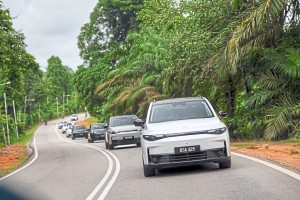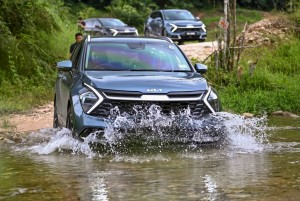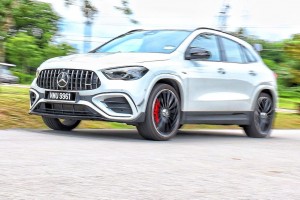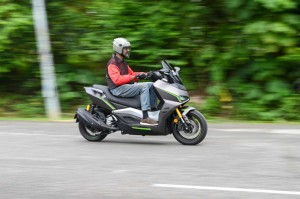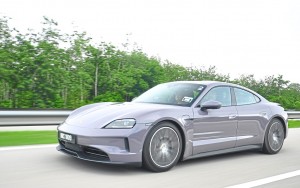KUALA LUMPUR: Demand for electric vehicles (EVs) is expected to grow sharply in 2023, due to tax incentives as well as potential launches of more accessibly priced EVs.
Malaysian Automotive Association (MAA) president Datuk Aishah Ahmad noted that as at October 2022, a total of 2,093 units of EVs had been registered.
In a recent note, Fitch Solutions forecast passenger EV sales in Malaysia to grow rapidly in 2023, albeit from a low base, due to government tax incentives to boost adoption.
The research unit expects passenger EV sales in Malaysia to jump 45.6% in 2023 to 4,449 units.
“MAA believes we can reach this (Fitch Solutions’ forecast) sales in 2023, with the current tax incentives on completely knocked-down (CKD) and completely built-up (CBU) vehicles,” Aishah told StarBiz.
In Malaysia, there are import and excise duty exemptions for battery electric vehicles (BEVs). The exemptions will last until Dec 31, 2025 for locally assembled models, but only until the end of 2023 for CBU vehicles.
In the recently tabled Budget 2023, there was a proposal to extend the exemptions for CBUs by another year.
International Trade and Industry Minister Tengku Datuk Seri Zafrul Abdul Aziz also said recently that the government strongly supports the EV agenda.
Tengku Zafrul was quoted as saying the government was driving efforts to attract EV investments and aims for EVs and hybrid vehicles to consist 15% of total industry volume (TIV) by 2030, and 38% of TIV by 2040.
Tengku Zafrul added that the government wants 10,000 public charging stations for such green vehicles by 2025.
Aishah said such targets are achievable, provided all tax incentives for EVs remain and the government’s plans for public charging stations installation throughout Malaysia are implemented, as well as all needed infrastructure for the growth of the EV segment is put in place as targeted in 2023 and beyond.
“I do hope the current government continues to emphasise and encourage EV sales,” she said.
Tradeview Capital Sdn Bhd CEO Ng Zhu Hann also said he is positive on the outlook for battery electric vehicles (BEVs) and green vehicles in Malaysia.
“It is still at its nascent stage, but increasingly, we are seeing the private sector leading the adoption of BEVs in the country. The car makers are also bringing in new models, in line with the favourable government tax incentives and policies which make prices competitive, hence attracting consumers interest,” said Ng.
He also noted that there was rising awareness about climate change and the importance of the green agenda, which are shifting consumers’ preferences.

“Apart from buying BEVs for the sleek design and futuristic features, doing good and contributing back to the society in terms of lowering carbon emission do resonate with people,” said Ng.
On the government’s target of increasing sales of EVs and hybrid vehicles, Ng said this is possible considering that the past year’s sales performance have not taken into account of the recovery from semiconductor components shortage.
“This means, if the supply chain disruption in the EV sector can be resolved, these automakers should be able to fulfill orders quicker with shorter turnaround time.
In addition, there is an important factor that will help with mass adoption. The rollout of EV charging infrastructure is the key to spur wider adoption,” he said.
However, Ng pointed out that “range anxiety” or the limited travel range for BEVs on a single charge remains a concern for car buyers, especially for frequent inter-state motorists.
“If the government can work hand in hand with the private sector to alleviate such concerns, I believe BEVs’ growth in the coming years will remain intact. We are seeing initiatives such as Tenaga Nasional Bhd’s Elektron, Petronas’ Gentari, and Shell ReCharge coming up and hopefully, more will enter the industry to ensure easy access and convenience for BEV road users,” he said.
Meanwhile, Fitch Solutions also forecasted that plug-in hybrid electric vehicles (PHEVs) would lose market share in Malaysia in 2023 as more BEVs are launched.
The research unit said EV sales in Malaysia could exceed 1% of total industry volume (TIV) by 2024, as growing demand for both PHEVs and BEVs accelerates EV adoption.
Fitch Solutions added that Malaysia is well positioned to increase the assembly of battery packs as companies take advantage of higher demand for EV batteries.
Also, the research unit noted that Kuala Lumpur City Hall (DBKL) has ordered 60 electric buses from SKSBus Group, which will be delivered in stages starting 2022, while MAN Truck & Bus (M) Sdn Bhd,
beginning in 2023, will offer zero-emission, all-electric bus chassis as well as conventional bus chassis powered by low-emission Euro V engines as the company continues to drive changes in Malaysia’s public transportation sector toward sustainable mobility.
Natural Resources, Environment and Climate Change Minister Nik Nazmi Nik Ahmad had said recently that the government will look into ways to bring affordable electric vehicles (EVs) priced less than RM100,000 into the local market to benefit the people.
Nik Nazmi noted that the prices of most EVs in the local market are beyond the means of the vast majority of Malaysians.
Bernama had reported Nik Nazmi as saying that Proton would be introducing Geely-produced EVs and such vehicles may be offered at lower prices if they are locally assembled.
Nik Nazmi added that the expansion of the EV industry in the country was also part of the government’s efforts to achieve a low-carbon future, and the ministry would look into ways to improve Budget 2023 or Budget 2024 to include incentives for more Malaysians to own EVs.
Meanwhile, Maybank Investment Bank (IB) Research said in a recent report that electrification will continue to be a key agenda for Malaysia’s automotive sector – a key magnet to attracting new foreign direct investments (FDIs).
“Malaysia’s EV push is gaining momentum. The adoption rate is improving post the EV tax incentives support, with increasing new BEV, hybrid electric vehicle (HEV), and PHEV model launches as well as faster rollouts of fast public chargers (DCFCs),” said the research unit.
Maybank IB Research pointed out that the country’s xEVs’ adoption rate is at 2.6% currently.
xEV is the generic name for electromotive vehicles such as HEVs, PHEVs and fuel-cell electric vehicles (FCEVs).
“The four-wheelers xEVs and BEVs adoption rate as at October 2022 stood at 2.6% and 0.3% respectively, which is decent compared with Asean peers,” said Maybank IB Research.
The research unit pointed out that EV policies need to be continuously updated to future-proof growth.
“While Malaysia’s goals are relatively decent and achievable for a start, a more defined, continuously strong, progressive, competitive and forward-looking policy will see a greater push towards electrification, which, in our view is still lagging its Asean counterparts, such as Thailand, Indonesia and Singapore for now,” said Maybank IB Research.
READ MORE: MAA ups TIV forecast by 5% to 630,000

